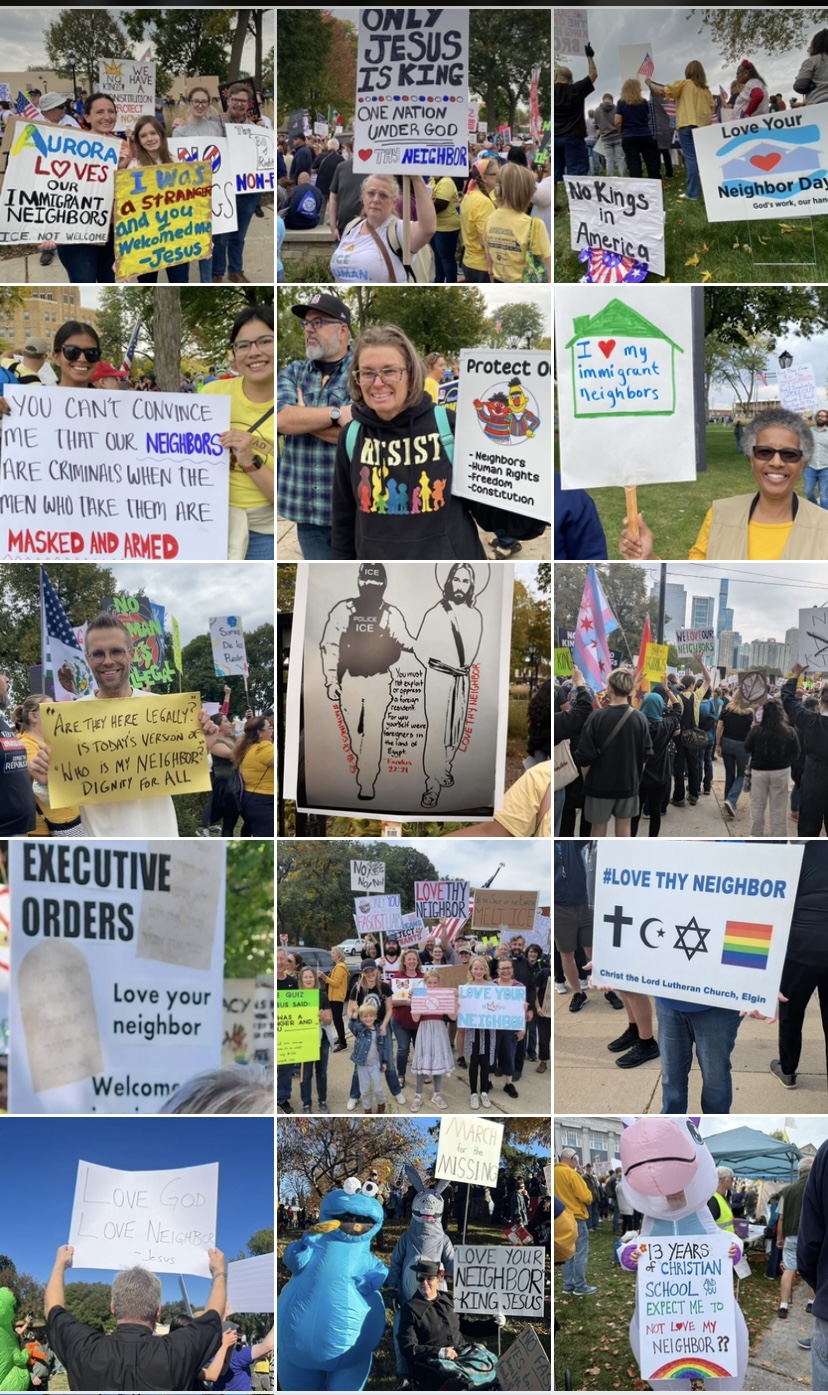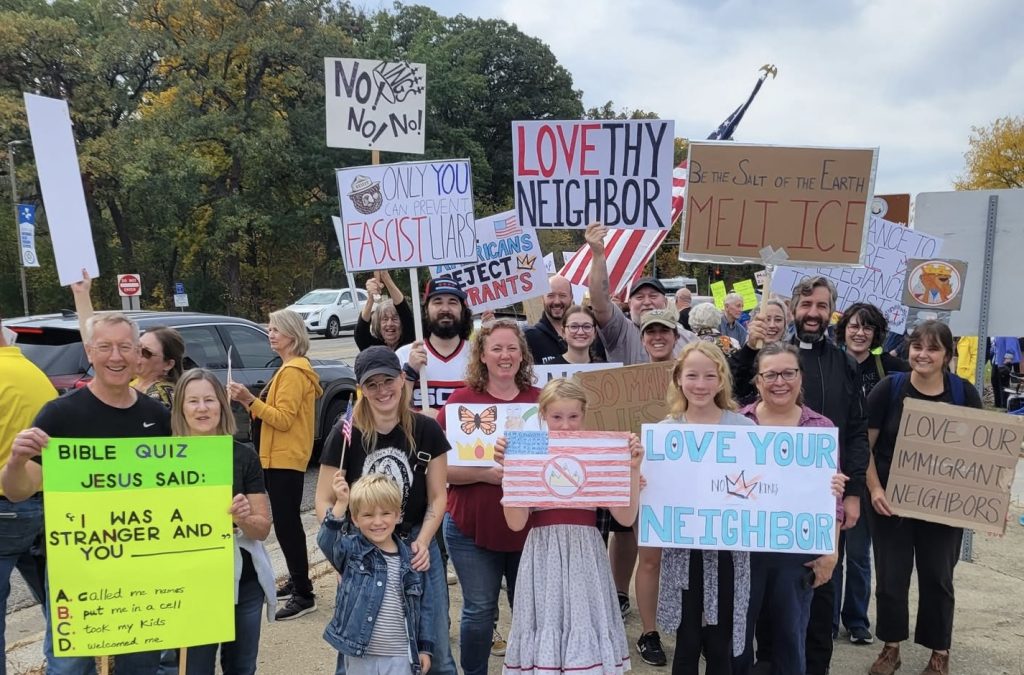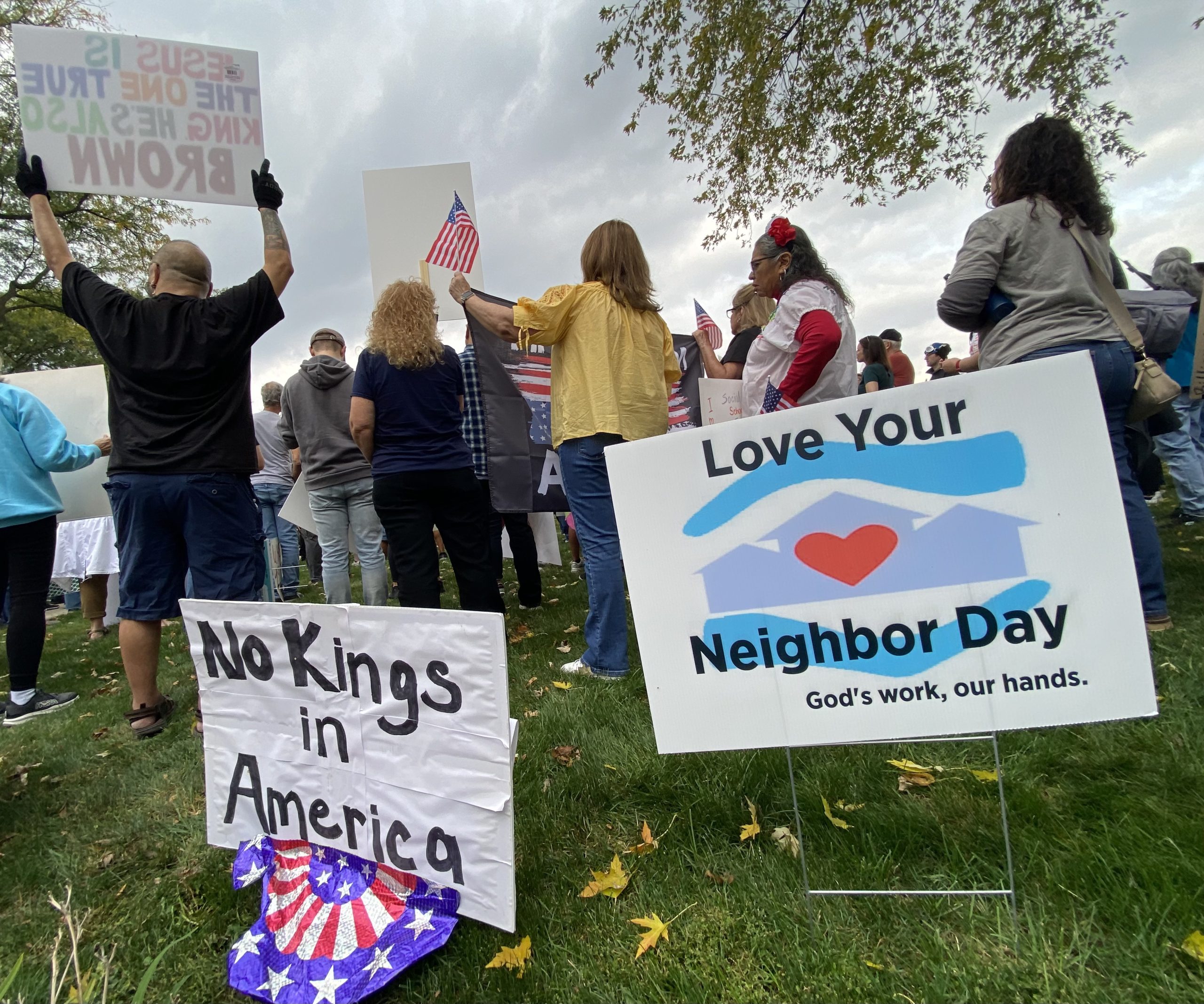Dear friends,
Is loving your neighbor as yourself conservative or liberal, traditional or progressive?
We live in highly polarized cultures. How something is labeled can define how we experience it. If we see it as being on “our side,” we may identify with it and get behind it. If not, we may see it as alien and dismiss it.
So where does loving our neighbor align in our culture war?
I believe that neighbor love is both – deeply conservative and traditional and deeply liberal and progressive. It defies our dualism. And that’s part of its beauty. It’s why we need it now more than ever as polarization tries to separate us into enemy tribes.
Let me try to briefly explain.
It’s Conservative
Neighbor love is conservative and traditional.
It holds the conviction that we have a real, God-given moral obligation to love people. We are called to care for one another just like we ourselves want to be cared for. This is the golden rule.
And this sacred responsibility isn’t new; it stretches back thousands of years in holy scripture and the best of human culture. Indeed, its tradition goes all the way back to the heart of our Creator “in the beginning.”
This means that neighbor love is not arbitrary or purely defined by how we feel and what we want. It’s not contingent on what happens to be popular today. No, loving our neighbors as ourselves often challenges us to be transformed in our character and to make costly decisions.
In sum, then, neighbor love is constantly calling us back to our ancient roots and deeper into couragoues virtue.
It’s Liberal
And this is also why neighbor love is liberal and progressive. The deeper we go into this love, the wider it calls us to expand the scope of who we recognize as our neighbors – as morally related to us and equally precious in value.
In his culture, Jesus highlighted the Samaritan as an exemplary neighbor. This was shocking, because Samaritans were typically hated. They were seen as religious heretics, ethnic outsiders, and political rivals – not as “neighbors” worthy of love. And yet, Jesus boldly transgressed this normalized limit to love.
Ever since, neighbor love has been challenging us to face the limits we’ve placed on our love for our “Samaritans.” It’s motivated people to abolish injustices, hypocrises, and double-standards that were once taken for granted or even justified in God’s name with Bible verses. Revolutionary change has rippled out in religion, morality, law, and culture. Enslaved people, women, children, and various minorities are just a few examples of neighbors whom society has all-too-slowly learned to “love as itself” – as worthy of equal belonging, dignity, security, and agency.
In short, conserving this ancient tradition of loving our neighbors simultaneously calls us to progress forward into a more liberated future in which every “other” is loved as a neighbor.
The Paradox
From this perspective, neighbor love can appear almost boringly familiar and shockingly unpredictable at the same time. We know the ancient call: “Love your neighbor as yourself.” But we’re still learning the implications: “Even them?” It’s “duh!” and “whoah!” blended together.
In my journey, I’ve seen this paradox repeatedly. If you make loving your neighbors central to your life, some people will probably see you as “old-school,” “traditionalist,” even “stuck.” But other people will probably see you as “woke,” “radical,” even “revolutionary.” You might be accused of being “irrelevant” and “dangerous” at the same time. You’ll likely be misunderstood and labeled in contradictory ways by polarized people.
Jesus embodied this paradox. From one perspective, he was a homeless teacher of nonviolent love who made time for children and seemingly every kind of person, especially people on the margins. What could be less threatening? From another perspective, he was a subversive enemy to public order who needed to be executed by religious and political authority. His love for all the wrong neighbors – Samaritans, “sinners,” “enemies” – challenged othering at its root.
That’s the paradox of neighbor love.
Neighbor Love at No Kings
We need this paradox today in the face of our polarization. We need the deeply grounded moral conviction and character found in “Love your neighbor as yourself.” And we need the self-reforming, ever-expanding moral imagination and audacity of “Love your neighbor as yourself.” We need both.
And this won’t fit neatly into any of our current, antagonistic boxes – conservative versus liberal, traditional versus progressive, us versus them. Neighbor love defies these dualisms. It’s deeper and wider than our manmade dichotomies. It can meet us everywhere in everyone.
I witnessed this paradox at the No Kings protest on Saturday, October 18th. It was evident here in Chicagoland and online across the country.
I saw so many people out in their communities carrying signs about loving our neighbors. Some of these signs struck me as “conservative,” some as “liberal.” It depended on the additional wording and symbolism on them. The collage below offers a sample of the signs I spotted on Saturday.

Signs from No Kings protests on October 18, 2025
But these diverse people stood together peacefully in public with the same message: loving our neighbors as ourselves is incompatible with (1) authoritarian government and (2) the arbitrary treatment of our immigrant neighbors. Said positively, neighbor love requires us to advocate for law-bound government and respect for the dignity of all people, especially the most vulnerable among us. (Last month, 71.5% of people in Immigration and Customs Enforcement (ICE) detainment had no criminal convictions according to federal data.)
I couldn’t help but notice that these neighbor-loving “protesters” were typically smiling. Joy was ambient in the air as we bore witness together to our equal human dignity and the protection of our neighbors. The most common chant I heard was, “No hate, no fear, immigrants are welcome here.”

Smiling protesters in Wheaton, Illinois on October 18, 2025
In fact, some beautiful soul set up a sign at the protest I attended that rebranded the event “Love Your Neighbor Day.”

Signs from Aurora, Illinois on October 18, 2025
Neighbor love is an ancient movement that’s been unfolding for thousands of years across the earth. It continues expanding today. And it was inspiring to see so many different people coming together in public with the conservative-liberal message that we have a sacred imperative to love our neighbors, including the “others” that some want to un-neighbor today.
The Stakes: Resisting Dehumanization
That same Saturday, I saw a very different message that reminded me of the stakes of loving our neighbors today.
The president of the United States posted an AI-generated video of himself. He was wearing a crown, flying a fighter jet, and dumping feces on the people demonstrating in their communities. With revulsion, I imagined his fecal filth burying the gray-haired African American woman next to me holding the sign “I love my immigrant neighbors” and the white family across the street with the sign “Aurora loves our immigrant neighbors.”

Screenshots from the video posted by Donald Trump on October 18, 2025
It’s easy to dismiss this video as “joking,” “trolling,” or something else. But dehumanization leads to violence. This pattern is unmistakable across history. I saw it for myself in Ethiopia before the civil war erupted in 2020: words and images eventually lead to weapons and actions. And representing yourself as bombing people with feces is a gross act of dehumanization.
The president and many other public leaders (including liberals) are aggressively seeking to normalize dehumanization in our society. And thus they are seeking to normalize the gateway to violence. In his book On Inhumanity, the philosopher David Livingstone Smith warns, “given the right circumstances, virtually all of us are capable of slipping into the dehumanizing mindset, and committing acts of cruelty that would otherwise be difficult or even impossible for us to perform.”
Today choosing to love our neighbors has become an act of defying dehumanization. Differ. Disagree. But refuse to dehumanize anyone. Resist by insisting on treating all people with respect. That is what I witnessed among the peaceful protesters in Aurora and across the country who came out in solidarity with their neighbors. As the Holocaust-survivor Elie Wiesel said, “Never allow anyone to be humiliated in your presence.”
Liberal, conservative, and otherwise, neighbor offers ample inspiration and challenge for all of us. It’s our best hope in the face of today’s polarization veering toward dehumanization. Let us come together in making this ancient love the center of our attention, vision, and action in our time.
Love your neighbor as yourself.
PS: I invite you to dive deeper into the history of this neighbor-love movement and its implications for today in my new book Reviving the Golden Rule: How the Ancient Ethic of Neighbor Love Can Heal the World. It’s also available on all audiobook platforms here. Listen to my latest podcast episode about it on Shifting Culture.




